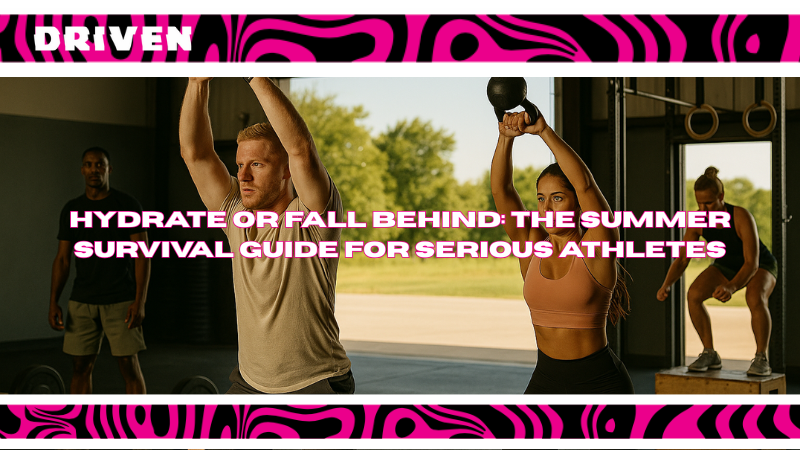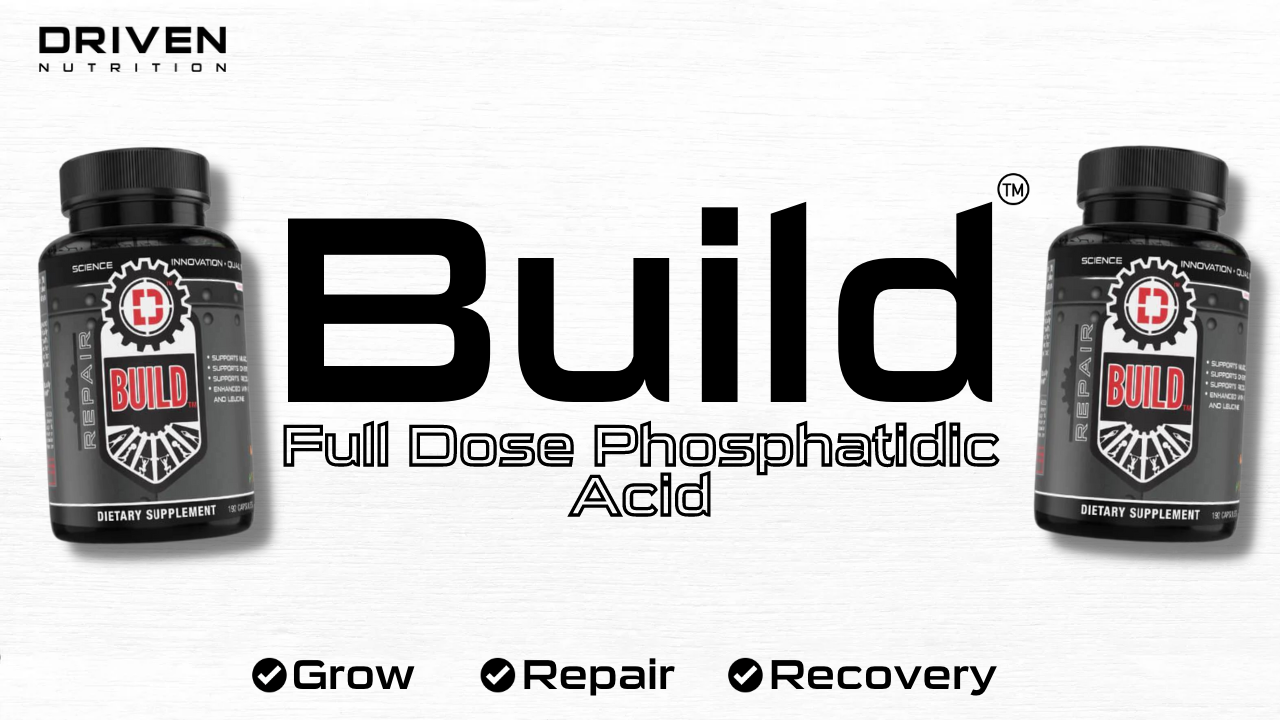
When summer heats up, so do your workouts, but without the right hydration strategy, your performance can take a serious hit. Research shows that losing just 2% of your bodyweight in sweat can reduce performance by up to 10%. That’s not just a minor dip, it’s the difference between hitting your goals and hitting the wall.
Whether you're in the middle of a CrossFit WOD, running a long trail, or pushing through a HYROX prep session, understanding how to hydrate the right way is essential for both performance and safety.
The Science of Hydration and Performance
Hydration isn’t just about drinking water, it’s about fluid balance, electrolyte replenishment, and maintaining total body function. Here's how dehydration affects your performance:
-
Plasma volume drops, forcing your heart to work harder and reducing oxygen delivery to muscles.
-
Core body temperature rises, which speeds up fatigue and increases the risk of cramping.
-
Glycogen is depleted faster in the heat, research shows athletes may burn through carbs up to 40% faster during hot-weather training.
-
Cognitive function suffers, with studies showing 3–5% dehydration can impact focus, reaction time, and decision-making.
In short, you won’t just feel more tired, you’ll be physically and mentally less effective.
Real-World Lessons from Elite Athletes
Noah Ohlsen – 2019 CrossFit Games
During a brutally hot week in Madison, Noah Ohlsen led early in the Games but reported struggling with energy levels during long, back-to-back events. Post-competition interviews revealed he adjusted his hydration protocols afterward to include more aggressive electrolyte intake between events, a lesson learned.
Kara Webb (Saunders) – 2015 Games “Murph”
In one of the most physically demanding events ever programmed, weighted “Murph” in high heat, Kara Webb pushed herself to a dramatic finish, but required post-event support due to exhaustion. She later discussed how underestimated heat and fluid management affected her recovery and performance for the rest of the weekend.
Endurance Athletes and Cramping
Multiple studies on marathon and triathlon performance show that athletes who fail to replace sodium and key electrolytes during high-heat efforts often experience performance drops and cramping, even if they feel well-hydrated with plain water. Sweat doesn’t just remove fluid; it pulls out sodium, potassium, magnesium, and chloride, key minerals for muscle function.
Why Water Alone Isn’t Enough
It’s a common misconception that water is the key to hydration. While water is essential, it’s not sufficient for athletes training in the heat. Sweat causes a loss of electrolytes, not just fluid. If those minerals aren’t replaced, performance and recovery suffer, even if you're drinking water regularly.
This is where electrolyte support and amino acid supplementation make a major difference.
Featured Products: The Driven Hydration Stack
FRESH
A clean, sugar-free electrolyte formula designed to restore sodium, potassium, magnesium, and trace minerals. It helps regulate muscle contractions, reduce cramping, and improve hydration efficiency, perfect for training in hot environments.
EAAs (Essential Amino Acids)
Sipping EAAs during training helps support hydration and reduce muscle breakdown. They also help delay central fatigue and improve endurance, especially during longer sessions or multi-WOD days.
Suggested Use: Mix both FRESH and EAAs in your shaker and sip throughout training. Use them post-workout as well, especially if you're feeling depleted or cramping.
A Smarter Hydration Strategy
To keep performance high and recovery on point, follow these simple hydration guidelines:
1. Pre-Workout:
Drink 16–20 oz of water with electrolytes (FRESH) about 60 minutes before training.
2. Intra-Workout:
Mix FRESH + EAAs and sip every 10–15 minutes during training. This maintains plasma volume and supports muscle function.
3. Post-Workout:
Rehydrate based on sweat loss. Weigh yourself before and after training. For every pound lost, replace with 16 oz of water + electrolytes. Combine with protein and carbohydrates for a complete recovery.
4. Daily Maintenance:
You should also be drinking the minimum of half your body weight in ounces of water every day. This will help avoid muscle cramps and dehydration as well.
Final Thoughts
Hydration might not be the most exciting part of your summer training plan, but it could be the most important. Whether you're in a CrossFit box, logging long miles, or grinding through functional conditioning, your ability to stay strong and sharp depends on proper fluid and electrolyte balance.
Don't let the heat win. Hydrate like your performance depends on it, because it does.
1. (Reference: https://barbend.com/crossfitter-noah-ohlsen-interview-wodapalooza-2022/?utm_source=chatgpt.com)
2. (Reference: https://games.crossfit.com/article/shared-suffering?utm_source=chatgpt.com)



